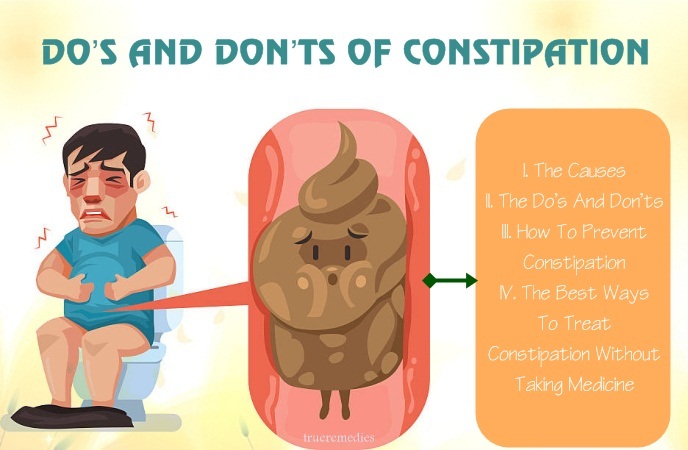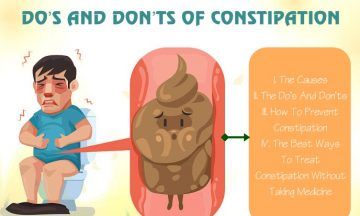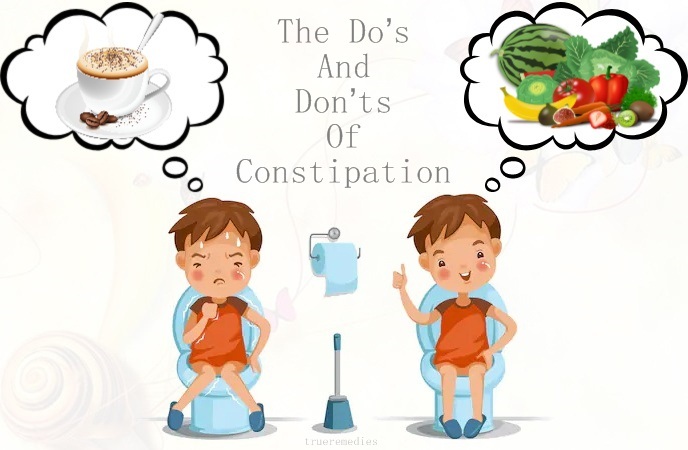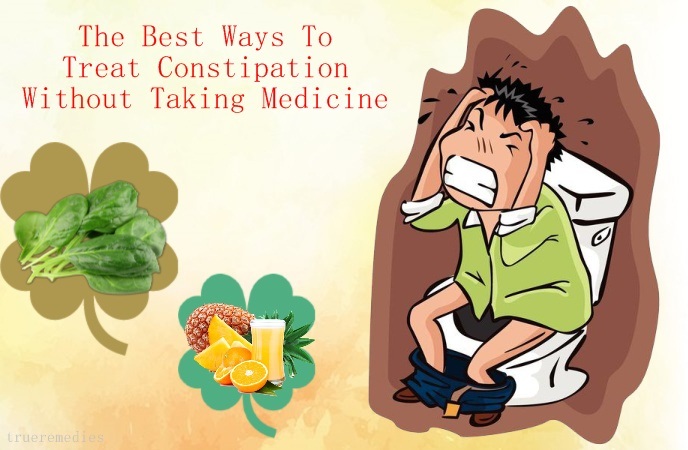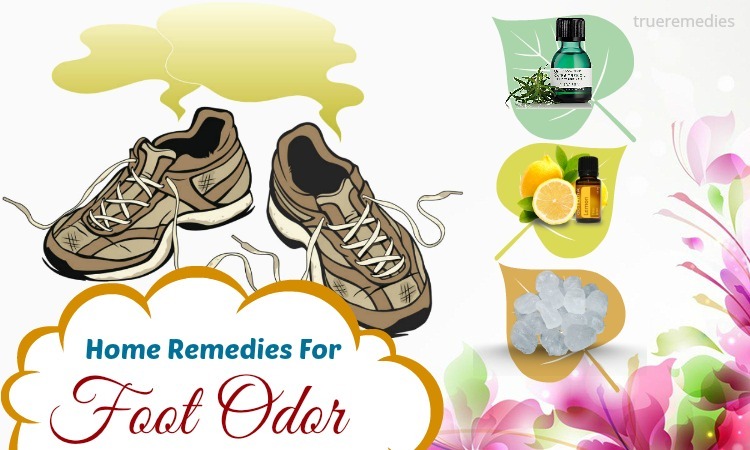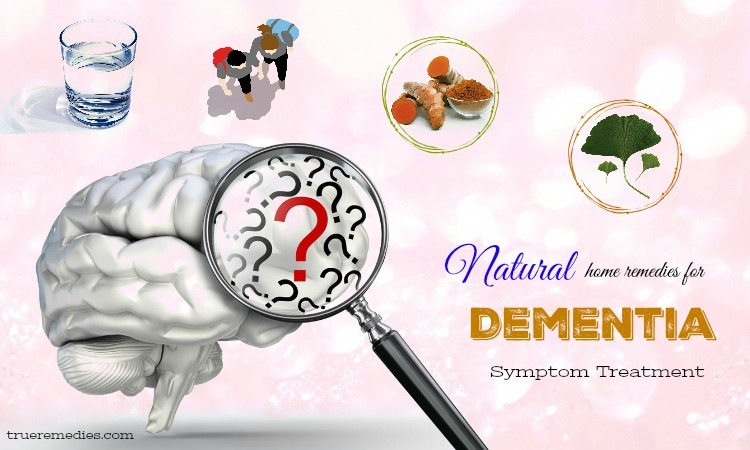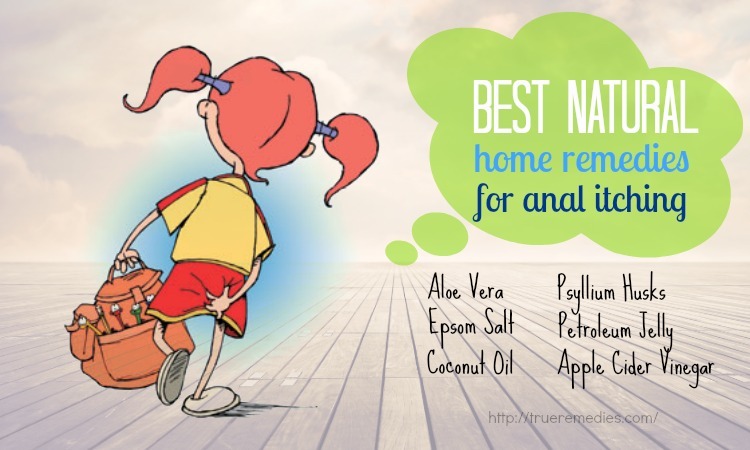Contents
Constipation is a dangerous disease and affects 20% of the North American population[1] [2]. It is caused by many different reasons such as the foods you consume daily, lifestyle, medicine or complications of many other diseases. It is believed that a diet low in fiber is the main cause of constipation. However, others having a healthy diet also often face with constipation. Why so? There are many causes of constipation that you do not expect. Please refer to the article to know the causes of constipation and the do’s and don’ts of constipation. Let’s check it out on TrueRemedies site!
- 14 Simple But Effective Home Remedies For IBS Pain
- 26 Home Remedies For Gas Pain And Bloating In Children & Adults
- 29 Home Remedies For Bloated Stomach Pain In Toddlers & Adults (This article was medically reviewed by DR SARAH BREWER MSC)
10 Do’s And Don’ts Of Constipation For Quick Relief
I. The Causes Of Constipation
1. Diet Low In Fiber
Of course, for people having no past medical history of constipation, it can be said that a diet low in fiber is the leading cause of constipation[3]. As you know, fiber helps soften the stool, making it easier to get out when you go to the bathroom. Therefore, if your diet lacks fiber, your stool will be solid, gradually developing constipation.
People who do not like vegetables, fruits, whole grains and enjoy eating meat, eggs, and cheese have a higher risk of getting constipation than others. Fiber helps promote bowel movement and prevents constipation effectively, so you should add it to your daily diet.
2. Having Bad Habits When Going To The Toilet
Do you often restrain yourself when you want to go to the bathroom? All doctors and medical experts say you should not do it too often because it is the common cause of constipation in adults. Dr. Sam Gina, professor of gastroenterology at Mount Sinai Hospital in New York, said not going to the toilet immediately can disturb the muscles of the rectum and anus, gradually leading to constipation[4].
Besides, the feces is accumulated in your colon, it will absorb the amount of water in your body and grow up. When you defecate, it will be more difficult for the stool to get out, causing pain and constipation.
3. Lack Of Exercise
Lack of exercise causes many digestive problems and lead to serious constipation[5] [6]. Exercise helps stimulate intestinal activity and helps food digested more easily in the digestive system. Many scientific documents have proved that exercise can tighten anus muscles and even make it easier for you to defecate.
TrueRemedies Partner Solutions

Need a Help from the Leading Expert Online, Available 24/7?
They’re all here and ready to answer your questions online or by phone. Keep asking questions until you get the answer you need.
Everything has two sides and too much exercise can cause constipation. Exercising a lot makes you sweat a lot to correct your body temperature. This can lead to dehydration meanwhile the intestine needs to absorb water to convert food into feces and transport the stool to your rectum.
Therefore, make sure that you have proper exercise and relaxation. You also have to remember to add enough water when you do exercise.
4. Not Drinking Enough Water
If you have constipation, drinking plenty of water cannot help you to heal constipation. However, drinking water regularly will reduce the risk of constipation[7].
But, soft or carbonated drink, caffeine-containing drink will make constipation worse. And you should not drink alcohol since it also dehydrates your body, causing constipation or making it more serious.
5. Side Effects Of Vitamins
In general, vitamins do not cause constipation but sometimes calcium and iron can make your digestive system overwhelmed. Dr. Ginsburg said that patients with constipation should stop taking iron or calcium unless they need it[8].
6. Side Effects Of Medications
Medications have many side effects that you don’t know at all and constipation is one of them[9]. Antidepressants, anti-anxiety medications, medications for heartburn, hypotension or painkillers may cause constipation.
Dr. Atif Iqbal, MD, the director of Memorial Orange Coast Research Center, said that it is recommended for you to talk to your doctor about your constipation after using the medicine. There is always an alternative medicine in case of allergies or side effects affecting your personal life.
7. Abusing Laxative Drug
When you have constipation, the usage of laxatives is compulsory. But abusing them can cause neurons in the colon to be exhausted. And finally, you have to rely on laxatives regularly to get them to work, until they are no longer active.
8. Hypothyroidism
Poor thyroid operation or hypothyroidism may slow down your metabolism[10] [11]. According to Dr. Catherine Ngo, a gastroenterologist at Saddleback Medical Center in California, hypothyroidism not only decreases the feces frequency but also make them harder and drier[12].
Although constipation is not always associated with hypothyroidism, more and more young people with constipation have symptoms of hypothyroidism.
9. Age
As you age, metabolism will slow down, which results in less active intestinal operation and then constipation. When you become older, the muscles in your digestive tract don't work as well as they used to, and they gradually degenerate and stagnate, leading to a high risk of constipation[13] [14].
10. Pregnancy
Pregnancy changes hormones in your body and makes women more susceptible to constipation[15] [16] [17]. In addition, changes in the uterus can compress the intestine, slow the process of converting food into the stool, thereby causing constipation.
In addition to the common causes of constipation, there are several other problems leading to constipation that you cannot expect. For example, drinking a lot of milk or dairy products can also cause constipation.
Some conditions, such as neurological disorders, endocrine, and metabolic problems, lupus erythematosus, etc. can also cause contractions of the digestive system and lead to constipation.
Unfortunately, constipation can affect the quality of your life and your health. So you need to know the do’s and don’ts of constipation to avoid this dangerous disease.
II. The Do’s And Don’ts Of Constipation
1. The Do’s
a. Drink Plenty Of Water
The daily supply of water to the body is very important, especially for people with constipation[3]. Not only does water promote metabolism but also helps moisten and soften the stool, helping to push the stool out more easily.
Therefore, we should drink 2 to 2.5 liters of water every day. Starting a new day with a glass of water is also a good way to help your bowel movements work better. You can replace filtered water with juices to add more nutrients.
b. Take Laxatives Daily For Up To 2 Weeks To Help Restore Bowel Movements
It takes time to restart a machine that is not working well. Many physicians and patients have a misconception that regular use of the drug is more likely to depend on the drug. Therefore, many patients are usually prescribed only small amounts of medication for a short period and are sometimes advised to avoid daily medication.
However, many researchers have shown that laxatives like prucalopride can be helpful even when used for up to 24 months[18].
c. Consume Fresh And Dried Fruit
In fact, fruit, especially dried fruit, contain a high source of fiber, and it is one of the best foods that help to relieve constipation[19] [20]. Water and fiber found in fruits help to give stool the proper consistency to pass easily. Some fruits good for relieving constipation are raisins, prunes, apples, figs, bananas, and applesauce.
d. Eat Whole Grains For Fiber
You can eat whole-grain bread, ground flaxseed, oatmeal, wheat bran cereal, and barley. The Academy of Nutrition and Dietetics states that men should get 38 g of fiber per day while women 25 g[21]. And an ounce of wheat bran cereal contains 10 grams.
e. Eat More Vegetables
Vegetables are high in fiber and may help prevent constipation. Legumes, salads, pinto beans, and raw vegetables are high in fiber, which makes them great choices for relieving and preventing constipation.
2. The Don’ts
To prevent constipation and the risk of hemorrhoids, a very scientific diet is needed. Experts have synthesized 5 kinds of food to avoid constipation including:
a. Caffeine-Containing Food
Foods such as chocolate, coffee, carbonated soft drinks, black tea contain high levels of caffeine. When they are absorbed into the body, they will make the body feel nervous, stressed, or even lose lots of water that lead to prolonged constipation.
b. Grease-Containing Food
The patients with constipation should avoid foods that are high in fat. Regularly eating many dishes, such as fried chicken, fried fish, and fried shrimp, will have a negative effect on the digestive process. They also can lead to dyspepsia, contributing to constipation.
c. Canned Food And Fast Food
Using a variety of foods such as chips, canned fish, pizza, snacks, and packaged candies is not recommended. Because they contain a lot of salt and fat that are not good for the body. Also, they are less nutritious and poor in fiber and may slow down the digestion process that can lead to the high risk of constipation.
d. Milk And Dairy Products
Consumption of large quantities of milk and dairy products such as cheese, butter, cream, etc can cause serious constipation.
Milk and dairy products contain high levels of sugar, saturated fat, and low fiber and so they all are the reasons leading to constipation[22].
e. Spicy Food
What kinds of food should patients with constipation avoid eating? The answer is spicy food including chili, pepper, ginger, etc. Using many of these food groups can expand blood vessels, decrease bowel movement that causes longer constipation.
III. How To Prevent Constipation
1. Going To The Bathroom At Certain Times Every Day
The best time to go to the bathroom is in the morning after breakfast, when the bowel is most active and stimulated by food in the stomach.
2. Getting Enough Sleep And Get Up Early
Sleep deprivation can affect bowel function, including the degree of muscle contraction in the intestine.
3. Combining Many Types Of Food
Combine a variety of cooked or salad vegetables in the main course and add beans or hard-shelled seeds to stews or curries.
In addition to eating fresh fruits, it is also possible for us to drink pure fruit juice like plum juice or eat dried fruits.
Plums are especially rich in fiber and contain sorbitol which is a sugar helping soften stool and reduce constipation.
4. If You Need To Go To The Bathroom, Go Right Away, Don't Hold It
When we want to go to the bathroom, do it immediately. If we keep it, the pressure to remove waste from the colon is also reduced. Sometimes, the muscles in the perineum may “forget” how to stretch and still shrink even when the body is ready to go to the toilet. The exact cause of this condition is unknown.
IV. The Best Ways To Treat Constipation Without Taking Medicine
According to many experts, constipation should be treated as soon as possible. If the disease gets worse, it will lead to dangerous complications like hemorrhoids. It not only has a negative effect on health but also causes some problems for the daily life of patients. Here are some tips for you to treat constipation quickly in one of the following ways.
1. Eating Lots Of Spinach
This food is recommended by many experts for patients with constipation. Not only is it rich in fiber, but spinach also contains a large number of vitamins and minerals to help soften the stool, push the stool out and remove toxins from the digestive system.
In addition to using spinach to cook some dishes, patients should also drink 100ml of juice from this kind of vegetables every day. This is a quick and simple way to treat constipation that you should not ignore.
2. Supplementing Foods High In Probiotics
These foods have been proven to be able to produce beneficial bacteria for the colon, thereby stimulating the digestive system to work more efficiently[23] [24] [25].
Every day, we should add just enough probiotic from many different products like melon, yogurt, etc. This is a treatment of constipation and helps prevent many diseases of the gastrointestinal tract.
3. Eating Foods High In Magnesium
This kind of food is very common in daily life, but not everyone knows they can be used to treat constipation[26]. The activity of this mineral helps improve the activity of intestinal movement, enhances the activity of the digestive system and helps treat constipation quite effectively. You should add magnesium by eating cereals, nuts, rice, wheat, green vegetables, etc.
4. Adding Fiber From Fruits And Vegetables
This kind of food is necessary for patients with constipation and considered an efficient cure for constipation. Fiber can help keep water in the stool, stimulate intestinal movement to make stool easier to push out. Fiber supplementation is also quite simple: you only need to eat lots of green vegetables and fresh fruit
But you must pay attention only to eat a sufficient amount and divide it into several meals to absorb more easily. Too much fiber intake will lead to diarrhea.
5. Doing Exercise Or Play Sports
Lack of exercise is also one of the causes of constipation. Therefore, doctors always advise patients to do exercise or play sports regularly. All movements help promote the activity of many organs in the body, including intestinal movement. This is also a good way to increase health, help the disease treated more effectively. The patient should persistently spend at least 30 minutes a day practicing, you will feel better after a few weeks of doing this.
Constipation can become a dangerous disease if you don’t have any treatments to cure it. You should not ignore the quick and effective treatments for constipation that we have just introduced. There have been many patients who are healed from this disease when applying the above methods. In case the disease is getting worse, don't hesitate to go to the hospital as soon as possible. For other useful and informative articles on our site, visit our News & Facts page to read more.

